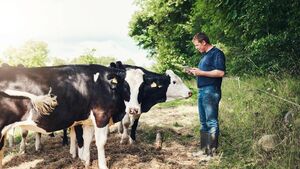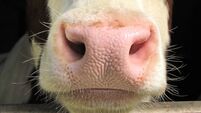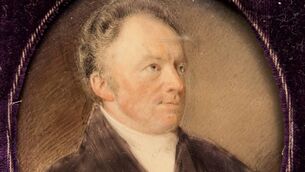Living Greener: Be grateful to our farmers

If recent years have taught us anything, it’s to be grateful for the farmers around us
I SAY ‘Ancient Rome’ and you probably picture togas and gladiators; ‘Medieval Japan’ is samurai, ‘Ancient Egypt’ would be pharaohs and so on. We rarely picture, though, what perhaps 90 per cent of people in any civilisation actually were – farmers. Behind every historical figure you’ve heard of – until a century or two ago – stood dozens of farmers; they put every morsel in the mouths of gladiators and pharaohs, and in yours today.
Farmers have never been cool. Teenagers rarely threaten to become farmers to shock their parents. They have no parades or groupies. A brief internet search for movies with farmer heroes yielded very few, and most of those from long ago; in our media they rarely appear except as comical rubes.
Real farmers in any era, though, had to be consummate soil scientists, botanists, disease and insect specialists, repairmen and veterinarians, even before these fields were named and codified.
The wrong spot on a plant, bellow from an animal or shift in the wind could mean disaster, so the men who ploughed and sowed the land needed to know it as you know your body.
The word plough derives from ‘plegan’, to take responsibility for, and that describes what farmers did. They were a husband to the land in the old sense of a protector, and their craft is still called “husbandry”.
At the same time, elders told me, farming reminds a man who’s boss, and it’s not Man. Living indoors and online we can imagine ourselves beings of infinite potential, but farmers deal in reality; a broken hoof or field rock doesn’t care about your infinite potential.
Whatever the era or culture, farmers tend to be God-fearing, so Bible verses are thick with references to sowers and grain, vines and trees, sheep and goats – all metaphors that everyone understood until yesterday.
In , Marrie Walsh’s family readied to sow their wheat and barley, her job as a child was to fill the bags her family would wear around their waist, reaching in and flinging seeds all around them to “where the fresh soil was waiting to receive and nurture it,” she said.
“It was a joyful sight; a biblical scene,” she said.
“Man sowing the seed, throwing hope into the air, hopiing that when it fell that the God-given Earth and combination of the elements would yield a good harvest in due course.” (Irish Country Childhood, 122) Such actions were once so familiar that when new technology appeared, people explained them with farming metaphors.
When radio was invented, the signals spread in all directions from a tower like seeds scattered by Walsh’s father, so people described it using the same word; they were “broadcast.”
The board attached behind a horse that kept mud from being dashed into the face of the farmer was a “dashboard,” later applied to automobiles and then computer screens.
The simple act of sowing, ten thousand years ago, kick-started civilisation. Stone Age foragers were as intelligent as any of us, but they couldn’t save large stores of food for later, as there wasn’t any way to transport it as the tribe followed herds or seasons.
They had edible plants all around, but crops need to be sown and harvested in the same year, stored in bulk, and easily bred, and few plants fit the bill.
Eventual people as far apart as Egypt, China and Mexico came to the same unlikely solution: grass.
Your lawn doesn’t look very appetising, but certain grasses – wheat and barley in the Middle East, rice in China, maize in Mexico – had seeds that could feed many times more people than any wild area, and became farmers.
More food meant larger communities, and it paid for them to stay in place and defend their crop.
Our naturally tribal species was forced to form larger groups – the first kindgoms and empires, the first governments, fed from the leftover grain the farmers weren’t eating. Predicting good weather – and perhaps creating good publicity for the ruler – led to the first priests.
Keeping track of grain meant creating the first writing, getting it from place to place led to roads and ships, and the mass of people doing all the non-farmer things meant building the first cities.
If recent years have taught us anything, it’s to be grateful for the farmers around us, who when the world is in crisis can still give us the food we need.
This year we should ask what they could use more of from us.





